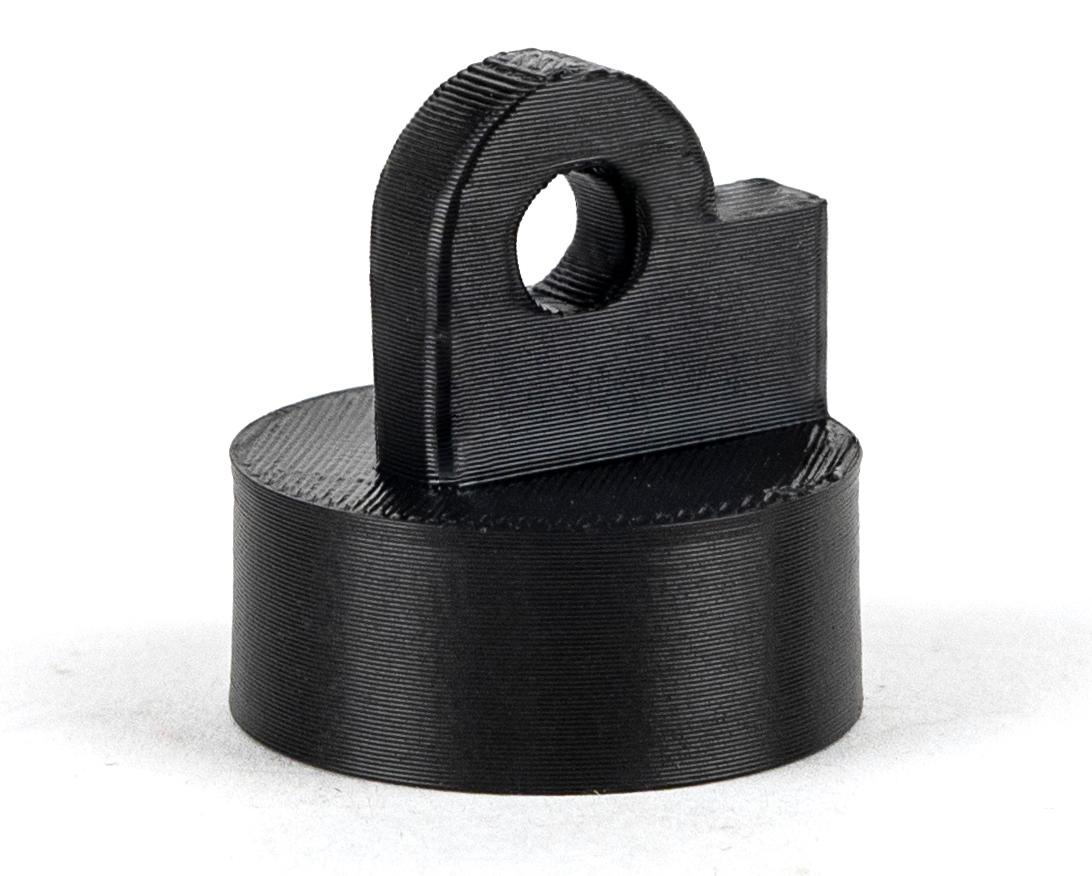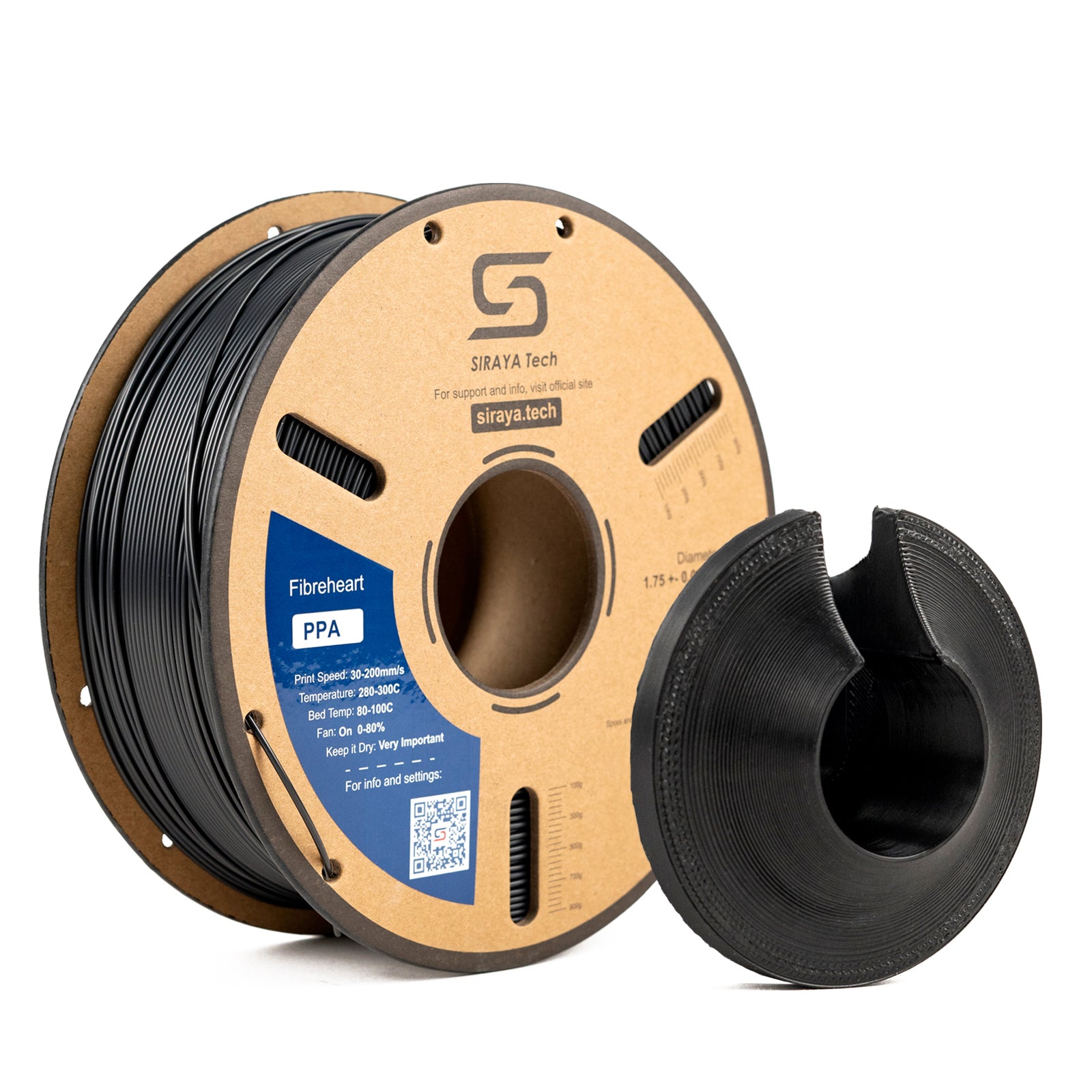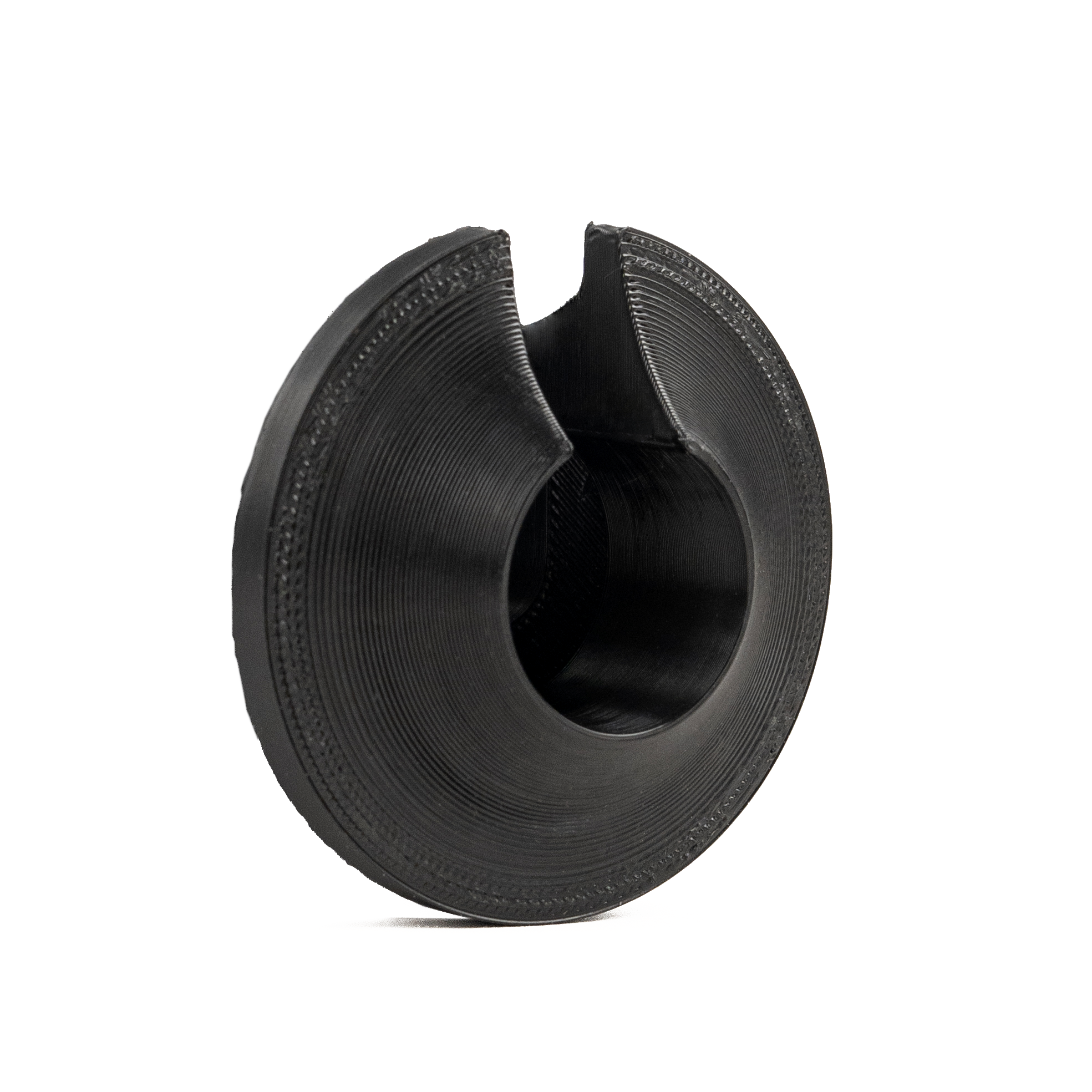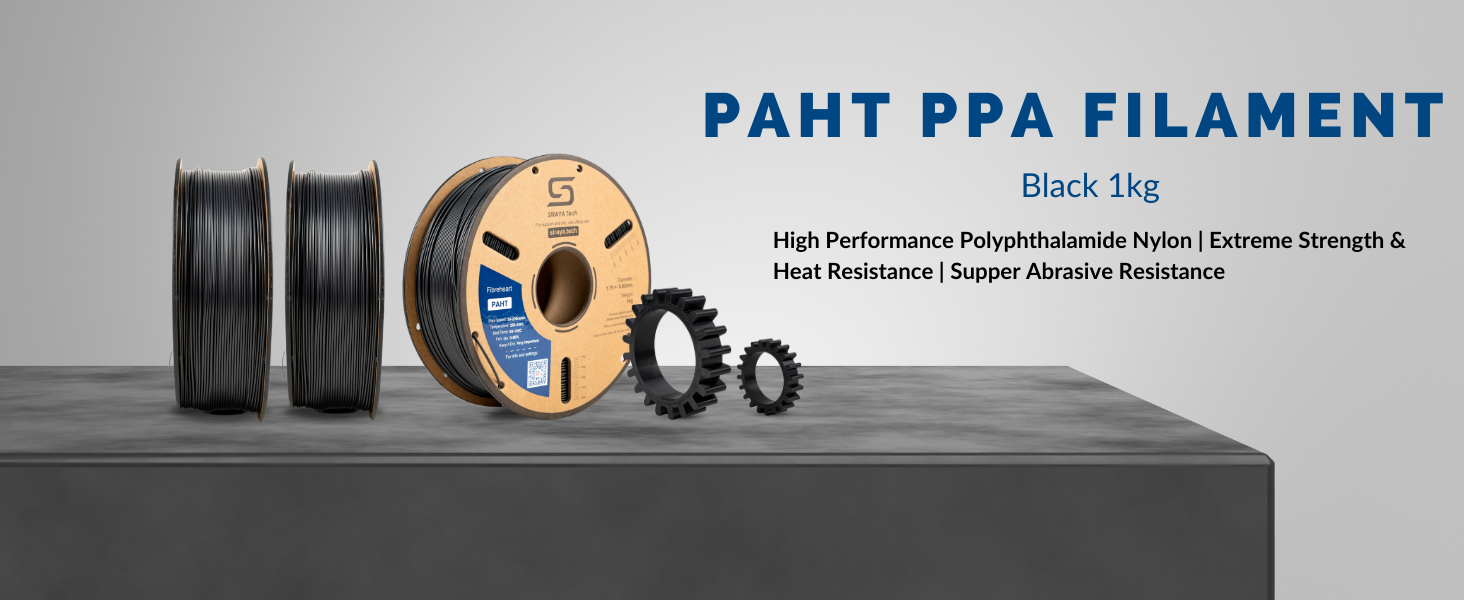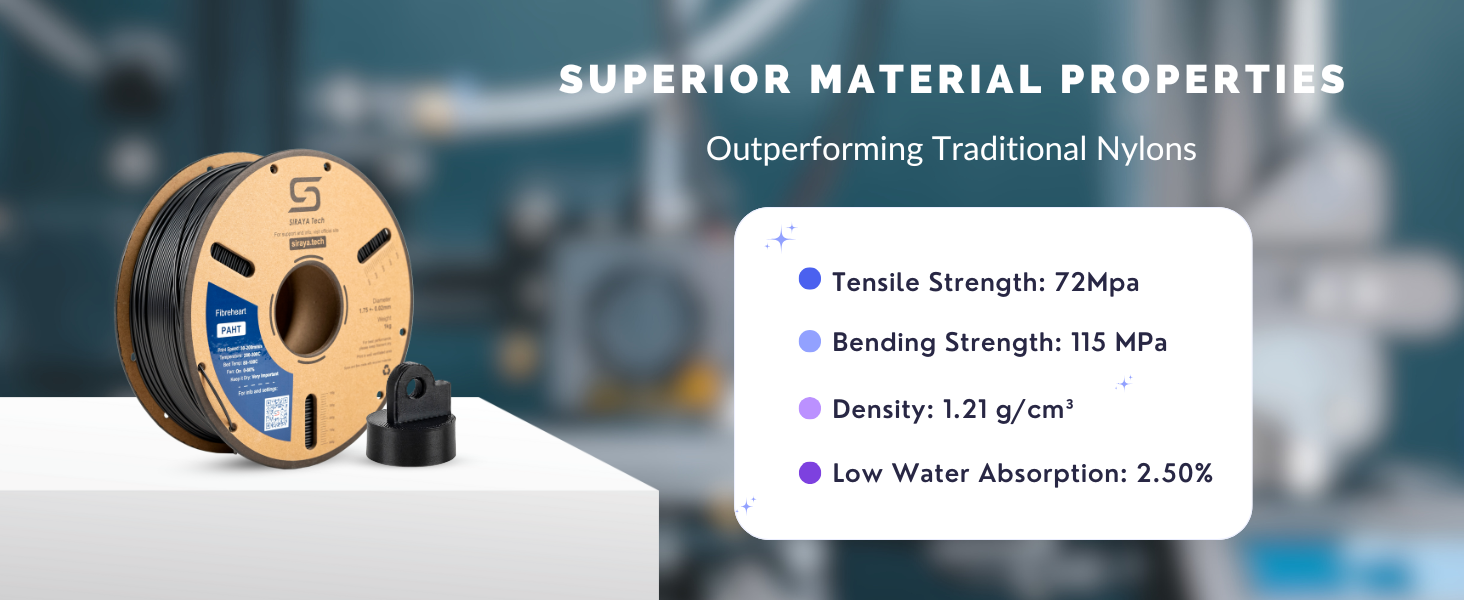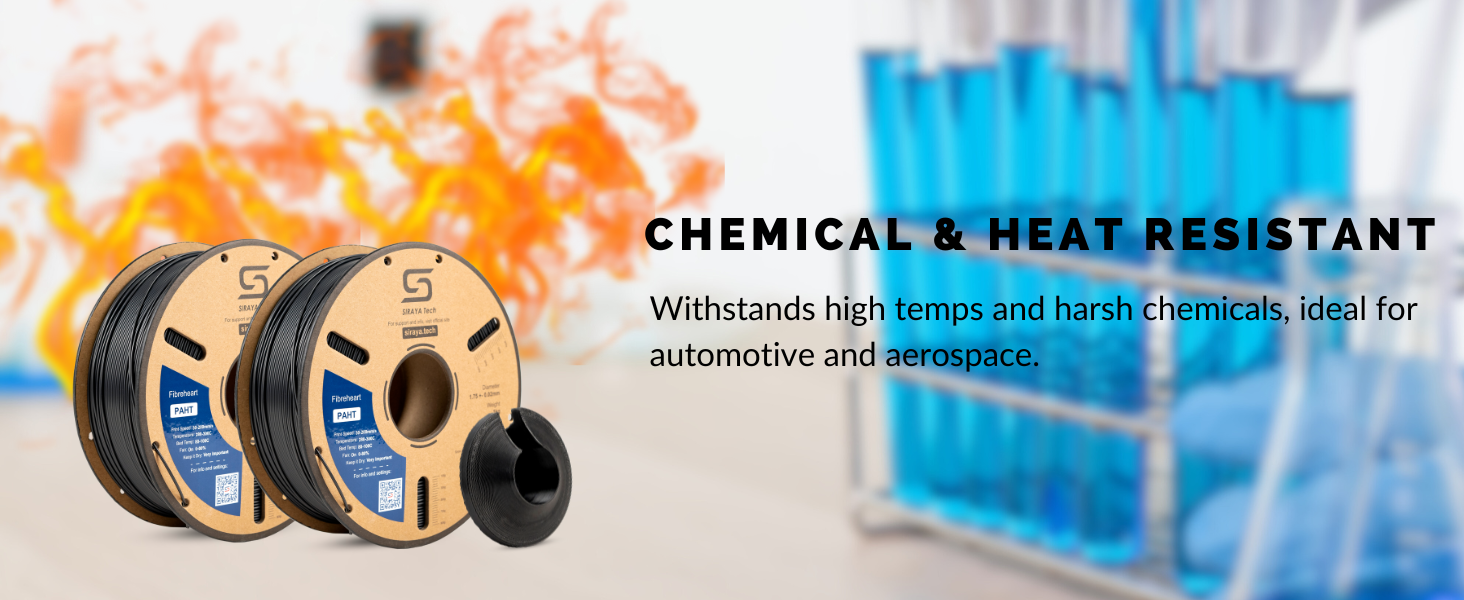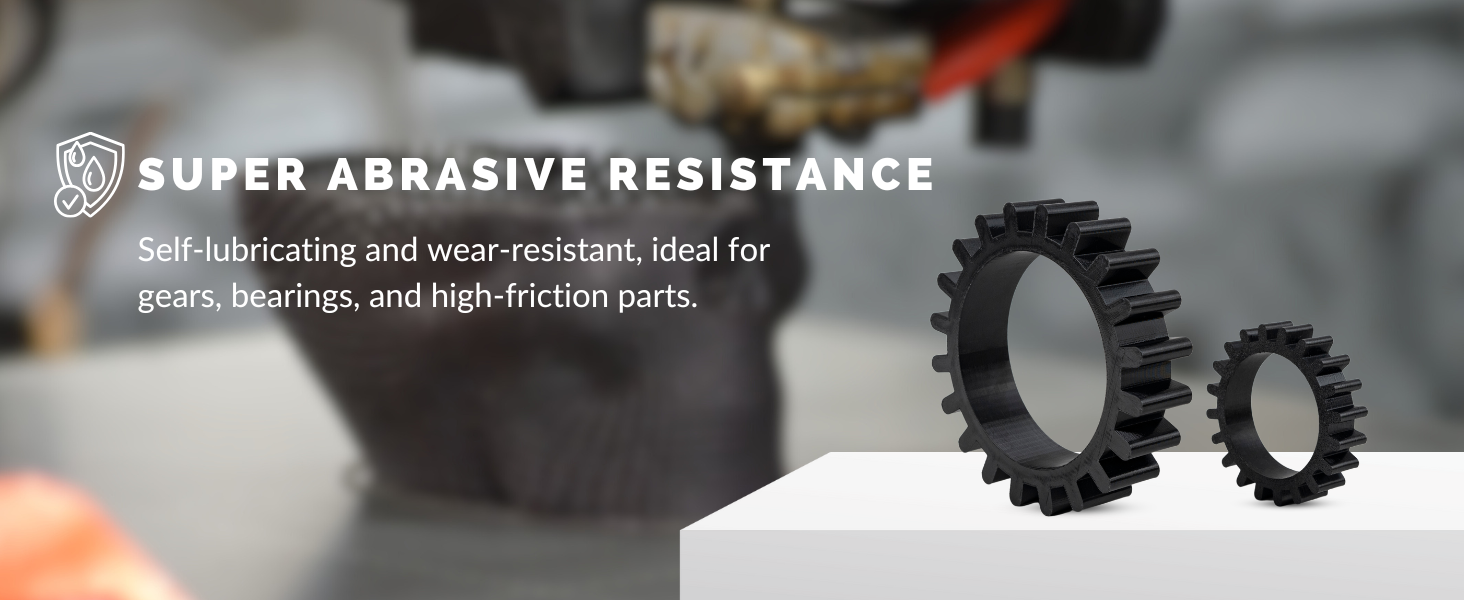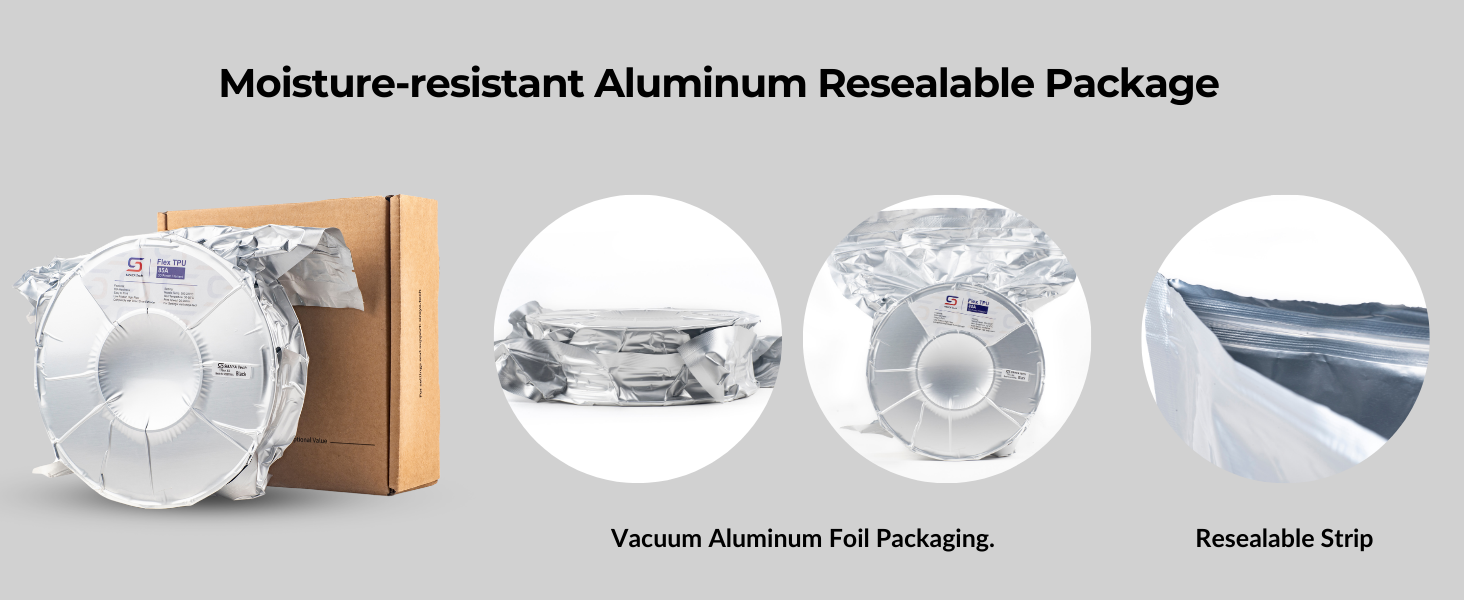Description
Available on Amazon
Elevate your 3D printing capabilities with Siraya Tech Fibreheart PPA, the ultimate choice for professionals and industries demanding peak performance. This 1kg (2.2lbs) spool of 1.75mm pure PPA (Polyphthalamide) Nylon filament sets a new standard in additive manufacturing for high-performance parts.
-
Superior Material Properties: High-temperature PPA with 1.2 g/cm³ density, 70 MPa tensile, and 114 MPa flexural strength, outperforming standard nylons.
-
Super Abrasive Resistance: Low friction and self-lubricating, ideal for gears, bearings, and components under constant wear.
-
Superior Moisture Resistance: PPA demonstrates significantly better moisture handling with a saturated moisture absorption rate of approximately one-fifth of PA6 and other Nylons.
-
Chemical and Heat Resistant: Withstands chemicals and high temperatures, ideal for automotive, aerospace, and industrial applications.
-
Versatile Industrial Applications: Perfect for prototypes and high-stress parts like gears and bearings in demanding engineering projects.
- Annealable Filament for Enhanced Strength: Annealing enhances durability, reduces stress, and improves dimensional stability for precise, high-performance engineering applications.
Estimate shipping
Why choose Siraya Tech Fibreheart PPA
SUPERIOR MATERIAL PROPERTIES
Engineered with high-temperature PPA (Polyphthalamide), Fibreheart PAHT PPA boasts a density of 1.2 g/cm³, low water absorption of 2.50%, and exceptional strength. Achieve outstanding tensile strength of 70 MPa (dry) and flexural strength of 114 MPa (dry), surpassing traditional nylons.
SUPER ABRASIVE RESISTANCE
Featuring a low coefficient of friction and self-lubricating properties, Fibreheart PAHT excels in wear-resistant applications. Ideal for high-strength gears, bearings, and industrial components subjected to constant friction and wear.
EXCELLENT CHEMICAL AND HEAT RESISTANCE
Withstand harsh chemicals and elevated temperatures with ease. Perfect for automotive, aerospace, and industrial applications where exposure to aggressive substances and high heat is common.
VERSATILE INDUSTRIAL APPLICATIONS
Excel in creating functional prototypes, end-use parts, and high-stress components. From complex gears to precision bearings, Fibreheart PAHT is the go-to filament for demanding industrial and engineering projects requiring superior strength, wear resistance, and dimensional accuracy.
SUPERIOR MOISTURE RESISTANCE
PAHT demonstrates significantly better moisture handling with a saturated moisture absorption rate approximately one-fifth of PA6 and other Nylons. Proper drying and storage procedures remain essential for optimal printing results, but PAHT's enhanced moisture resistance provides more stable printing performance compared to standard nylons.
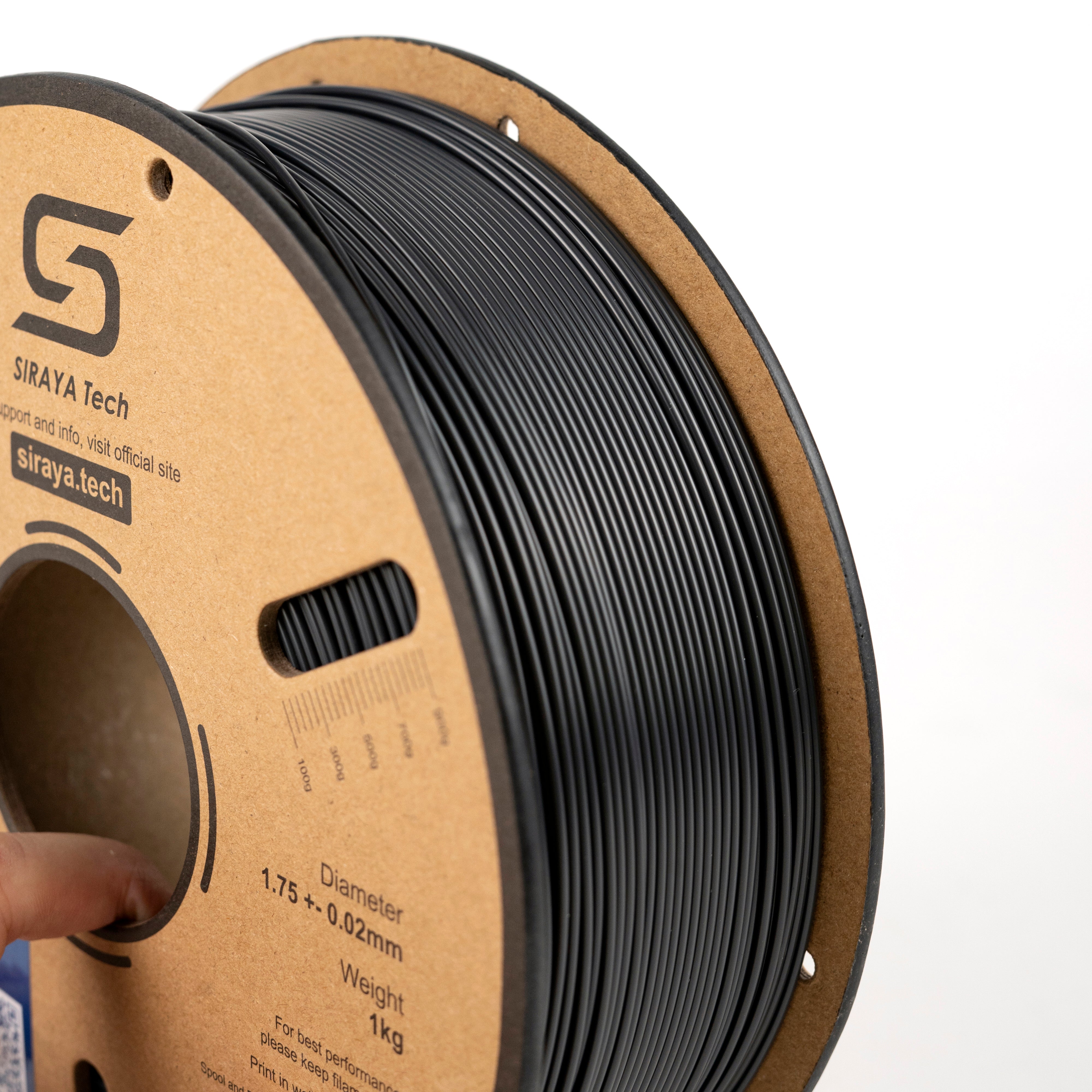
Key Material Properties
Density: 1.2 g/cm³
Tensile Strength (X-Y): 70 MPa (dry), 60 MPa (saturated)
Flexural Strength (X-Y): 114 MPa (dry), 87 MPa (saturated)
Impact Strength (X-Y): 10 KJ/m² (dry), 14.5 KJ/m² (saturated)
Water Absorption: 2.50%
Choose Fibreheart PPA for your most challenging designs
- Automotive and aerospace components
- Industrial tooling and fixtures
- High-performance gears and bearings
- Chemical-resistant parts
- Functional prototypes requiring strength and precision
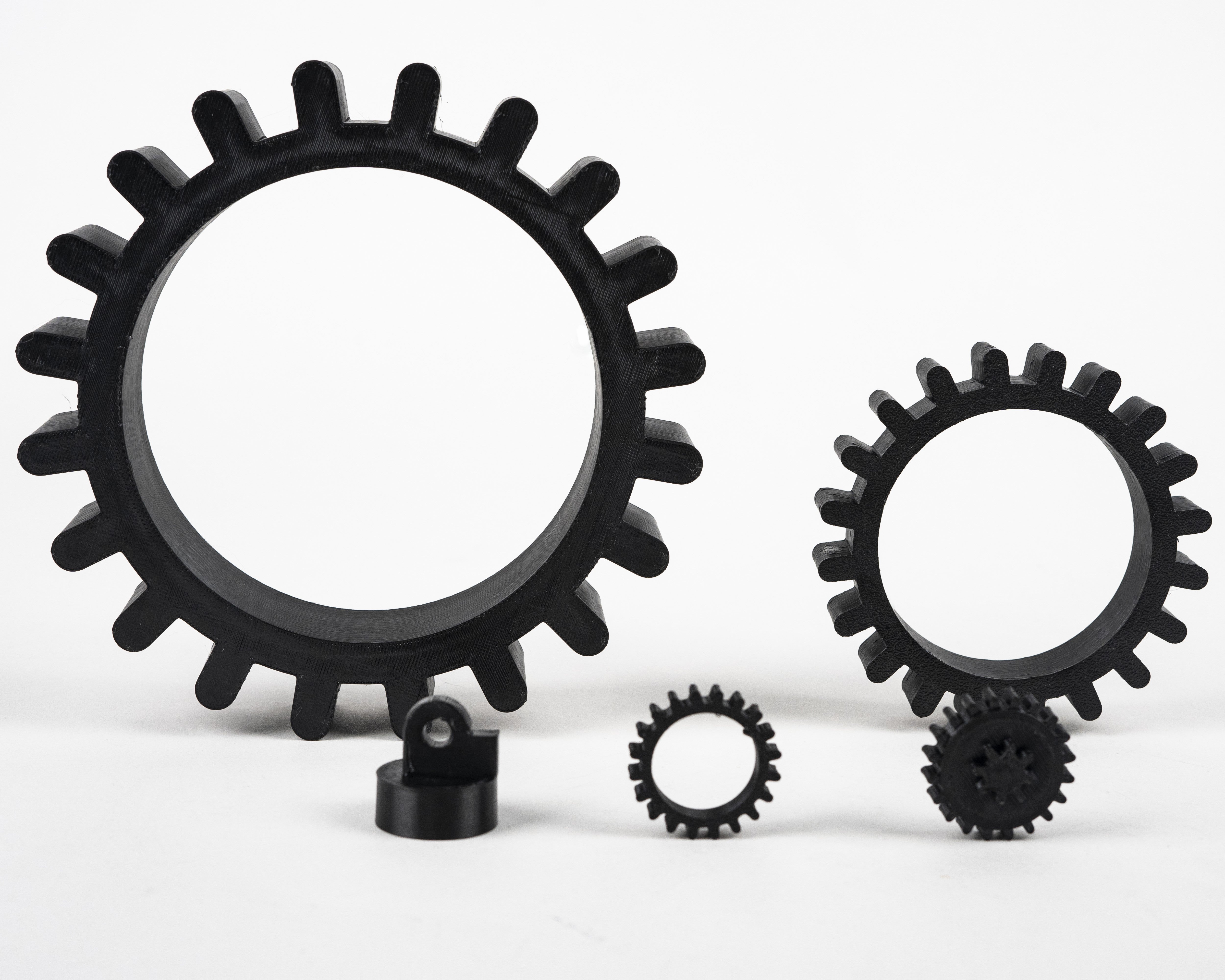
How to print Siraya Tech Fibreheart PAHT
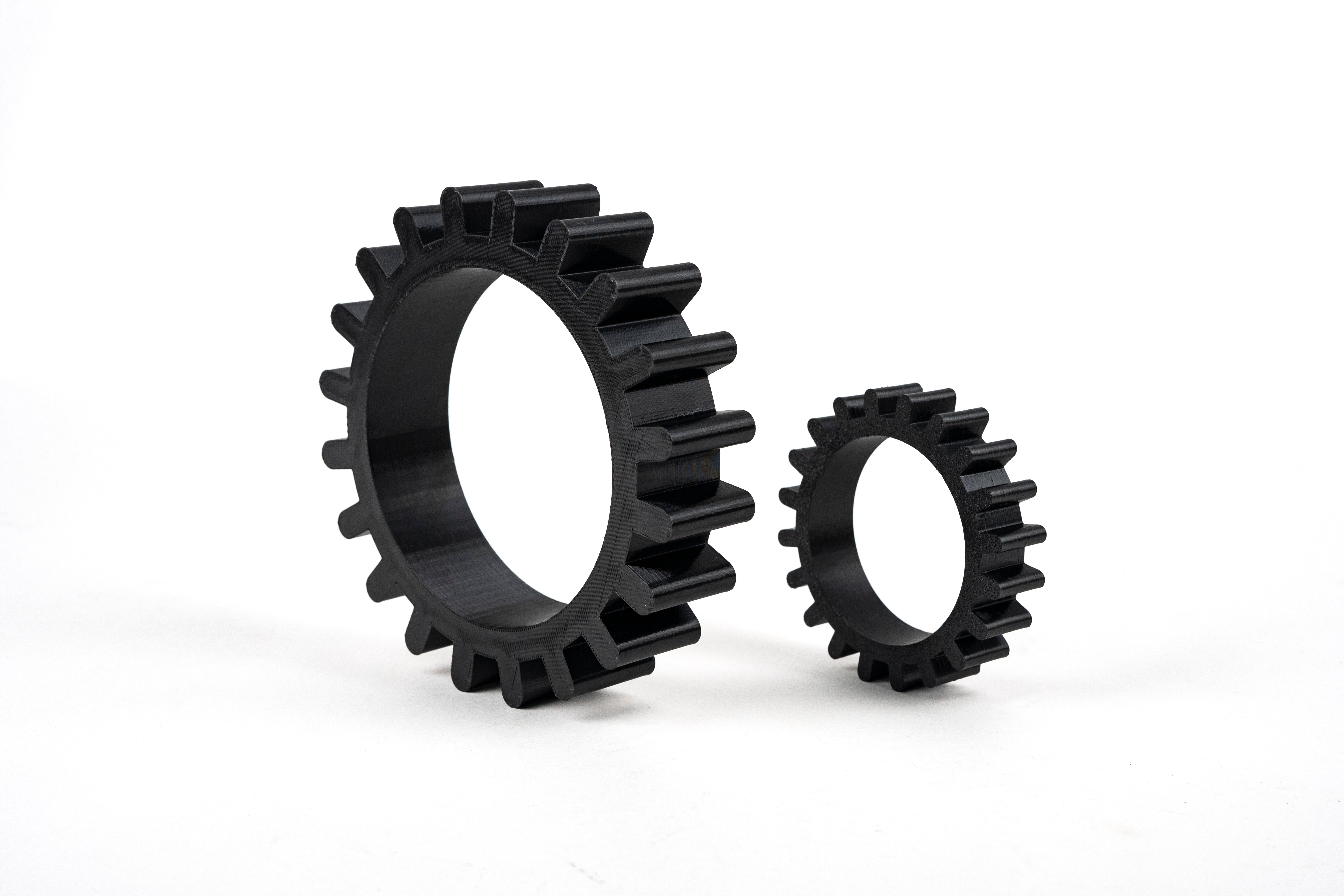
Optimal Printing Parameters
Nozzle Temperature: 280-300°C
Bed Temperature: 70-80°C
Recommended Nozzle Size: 0.4-1.0mm
Print Speed: 30-120 mm/s
Cooling Fan Speed: 20%-60%
Retraction Distance: 1-3 mm
Retraction Speed:1800-3600 mm/min
Build Surface: PEI sheet and apply glue stick coating
For best results, use with 3D printers capable of reaching high nozzle temperatures. We recommend using hardened steel nozzles and a heating block thickness of at least 12mm for optimal print quality.
Printing Considerations
- Ensure proper bed adhesion using a PEI sheet or PVP glue coating to prevent warping.
- Use an enclosure to maintain consistent temperature and reduce potential warping, especially for larger prints.
- Implement proper cooling strategies, adjusting fan speed based on part geometry and size.
- For complex geometries, consider using soluble support materials compatible with high-temperature printing.
- Post-processing may include annealing to further enhance mechanical properties and heat resistance.
- Always handle the printed parts with care, as they may have sharp edges or be hot immediately after printing.
- Annealing is not recommended given it can warp the print.
